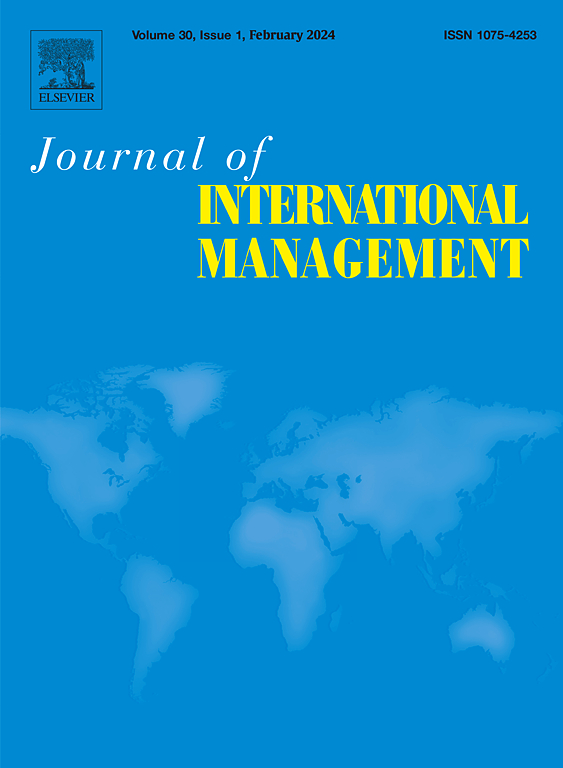Foreign and domestic university collaboration for outbound open innovation
IF 5.9
2区 管理学
Q1 MANAGEMENT
引用次数: 0
Abstract
Outbound open innovation, the external commercialization of the firm's knowledge, is important for creating and sustaining its competitive advantage. Surprisingly, limited studies have explained how and why a firm can enhance its likelihood of engagement in outbound open innovation activities by collaborating with universities, especially foreign ones. Building on the knowledge-based view (KBV), first, we differentiate the effects of collaborating with foreign versus domestic universities, since these create scientific knowledge that varies in novelty and ease of transfer. Second, based on these two knowledge dimensions, we argue that foreign university collaboration is more likely to have a higher positive association with outbound open innovation than domestic university collaboration, because the former has higher knowledge novelty than the latter. Third, however, when firms also collaborate with domestic value chain partners, collaborating with domestic universities is likely to have a higher positive association. We tested these arguments on 541 firms in New Zealand and found that collaborating with foreign universities has a positive association, especially when the universities are located in developed economies. Collaborating with domestic universities has a positive association when firms also collaborate with their domestic value chain partners.
国内外高校合作开展对外开放创新
对外开放式创新,即企业知识的对外商业化,对企业创造和保持竞争优势具有重要意义。令人惊讶的是,有限的研究已经解释了企业如何以及为什么可以通过与大学(尤其是外国大学)合作来提高其参与对外开放创新活动的可能性。基于基于知识的观点(KBV),首先,我们区分了与国外大学和国内大学合作的效果,因为它们创造的科学知识在新颖性和转移的便利性方面各不相同。其次,基于这两个知识维度,我们认为国外大学合作比国内大学合作更可能与对外开放创新产生更高的正相关关系,因为前者具有更高的知识新颖性。然而,当企业同时与国内价值链伙伴合作时,与国内大学合作可能具有更高的正相关。我们在新西兰的541家公司中测试了这些论点,发现与外国大学合作有积极的联系,特别是当这些大学位于发达经济体时。当企业与国内价值链合作伙伴合作时,与国内大学合作具有正相关关系。
本文章由计算机程序翻译,如有差异,请以英文原文为准。
求助全文
约1分钟内获得全文
求助全文
来源期刊

Journal of International Management
MANAGEMENT-
自引率
9.80%
发文量
67
审稿时长
81 days
期刊介绍:
The Journal of International Management is devoted to advancing an understanding of issues in the management of global enterprises, global management theory, and practice; and providing theoretical and managerial implications useful for the further development of research. It is designed to serve an audience of academic researchers and educators, as well as business professionals, by publishing both theoretical and empirical research relating to international management and strategy issues. JIM publishes theoretical and empirical research addressing international business strategy, comparative and cross-cultural management, risk management, organizational behavior, and human resource management, among others.
 求助内容:
求助内容: 应助结果提醒方式:
应助结果提醒方式:


